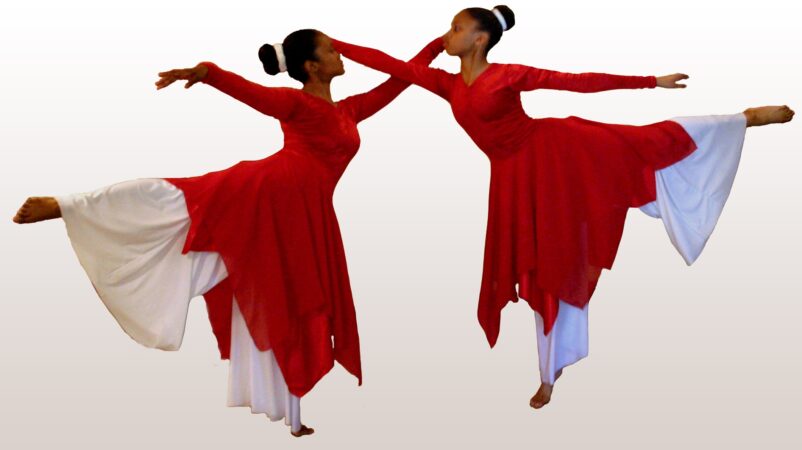The Bible always stresses a balance between the content of one’s beliefs and the resulting conduct in one’s life. A good example is found in Ephesians 4:1-3. “I, therefore, the prisoner for the Lord, urge you to live worthily of the calling with which you have been called, with all humility and gentleness, with patience, bearing with one another in love, making every effort to keep the unity of the Spirit in the bond of peace” (NET).
Paul admonishes us to live worthily of the calling with which you have been called. He means that we must live a life worthy of our high calling in Christ Jesus. Our practice should equal the teachings of our doctrine. We should take great pains to see that our lives are lived in perfect balance. The Biblical principle for living the Christian life is quite simply stated: The believer puts into daily practice the principles of the Word of God by the presence and power of the Holy Spirit.
In order to live a balanced Christian life, there must be good sound Biblical teaching. I have never seen any mature Christian who did not have a good understanding of the teaching of the Word of God. Practice without sound Bible teaching will go off in any and every direction. We can never attach too much importance to solid Biblical doctrine.
How can a Christian live a life worthy of the Gospel of Jesus Christ if he does not know what the Christian life is all about? At the same time we must never detach the importance of putting into practice what we understand to be true. How then do we live a life worthy of our calling? The Christian life is not the same thing as the culturally accepted norms of the local community in which we live. The world is antagonistic to the Christian life (1 John 2:15-17). God has called us out of the darkness into his marvelous light (1 Peter 2:9b NET).
How tragic when you can’t tell the difference between the standards of the culture and the local church. We were spiritually bankrupt, emotionally in bondage, and morally corrupt. However, when we were saved God awakened us to a new life and gave us the power to live that new life. We are now spiritually alive. But God, being rich in mercy, because of his great love with which he loved us, even though we were dead in transgressions, made us alive together with Christ – by grace you are saved! (Eph. 2:5 NET) The apostle Paul wrote, So then, if anyone is in Christ, he is a new creation; what is old has passed away – look, what is new has come! (2 Cor 5:17 NET)
Therefore, the apostle Paul admonishes us to, Be completely humble. That is the opposite of arrogance and self-assertion. The world tells us to stand up for our rights. Be assertive. Demand respect. The Bible says, Instead of being motivated by selfish ambition or vanity, each of you should, in humility, be moved to treat one another as more important than yourself (Phil. 2:3 NET). The world philosophy pulls in one direction, the Holy Spirit insists on another. Do you put other people’s needs and interests before your own?
Are you out for number one? We need to be gentle with people. The word Paul uses for gentle is power under control. Meek doesn’t quite give the sense of the original. A gentle person is a strong person under God’s control. This is what it means to be a Spirit filled. A Spirit-filled believer is a Spirit-controlled person. Jesus was this kind of a person, and he set an example for us. Take my yoke on you and learn from me, because I am gentle and humble in heart, and you will find rest for your souls(Matt. 11:29 NET).Blessed are the meek, for they will inherit the earth (Matt. 5:5 NET). That will be true because all who are not will kill themselves off in power struggles.
We must be patient. Literally, it means long-tempered. It is the attitude that will never give in when the going gets tough. It sticks with it and reaps the rewards. It is the attitude that never admits defeat in disappointments and discouragement but persists to the end. It is the attitude that refuses to retaliate, bears insults and injury without bitterness and complaint. Patience comes over a long time of suffering. I doubt if anyone is a patient who has never suffered physically, emotionally, or spiritually in life. We learn patience through the things we suffer (Rom. 5:3).
God is very patient with us and we need to become like him.
Bearing with one another in love is how we respond to the unloving behavior of other Christians toward us. How do we put up with one another? What is our typical response when other people do us evil? What is my attitude when I see two Christians having problems in their relationships? What is my attitude toward problems in a church? Do I do as Paul suggests here, making every effort to keep the unity of the Spirit in the bond of peace? (v. 3 NET)Paul is saying the Holy Spirit has already given us this unity when we put our faith in Christ.
We are not called upon to create this unity, but to “keep the unity. Pride destroys this unity in the Spirit. Overpowering self-assertion destroys vital relationships with other believers. Being short-tempered, rude, and non-extending our love to those who act ugly to us destroys all effort at keeping this unity of the Spirit through the bond of peace. Churches grieve the Holy Spirit just as individuals do (4:30-31). Let’s be determined to walk in the Spirit and keep ourselves under his control.
Selah!
Message by Wil Pounds (c) 2006





